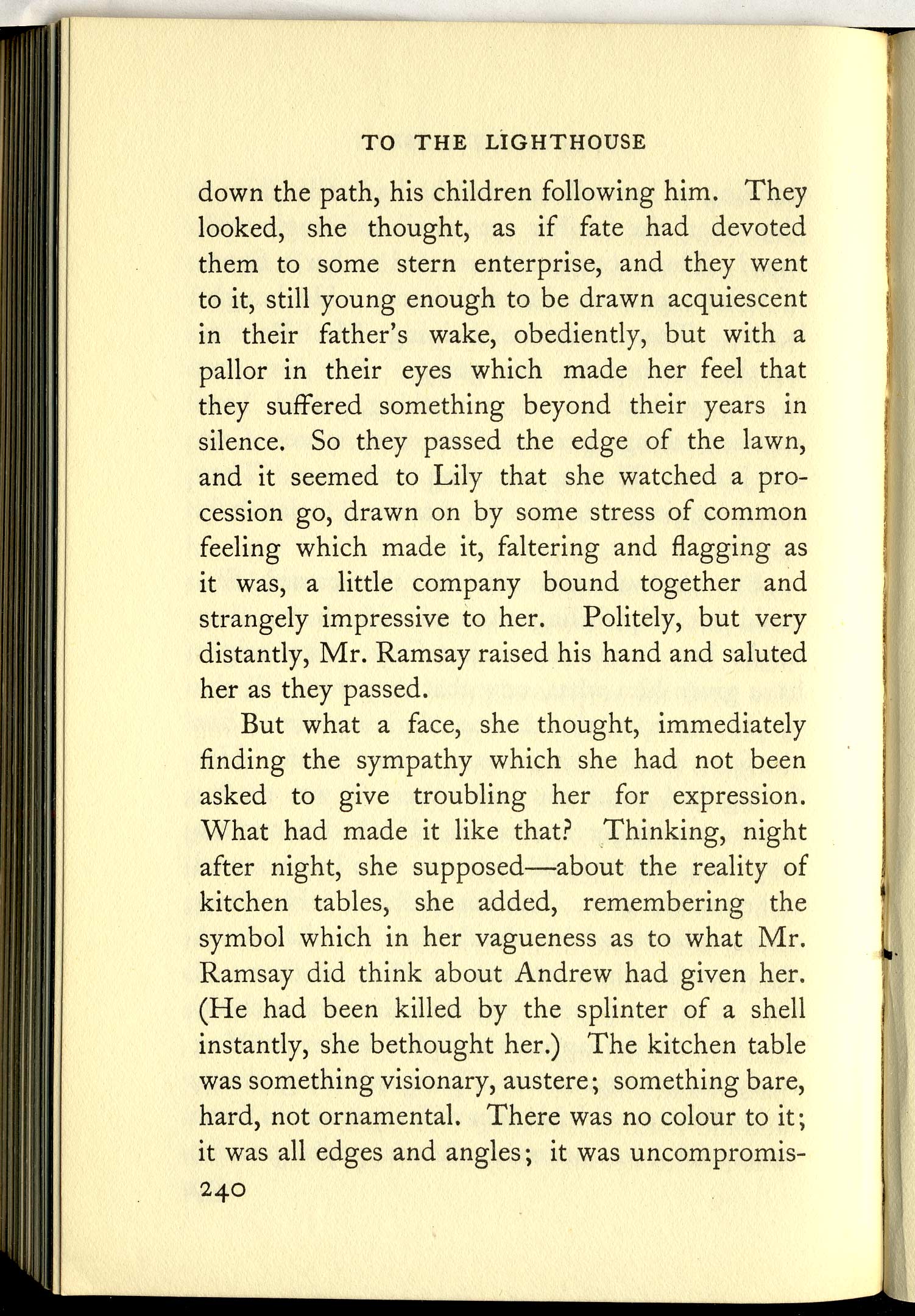
T0 THE LIGHTHOUSEdown the path, his children following him. Theylooked, she thought, as if fate had devotedthem to some stern enterprise, and they wentto it, still young enough to be drawn acquiescentin their father’s wake, obediently, but with apallor in their eyes which made her feel thatthey suffered something beyond their years insilence. So they passed the edge of the lawn,and it seemed to Lily that she watched a procession go, drawn on by some stress of commonfeeling which made it, faltering and flagging asit was, a little company bound together andstrangely impressive to her. Politely, but verydistantly, Mr. Ramsay raised his hand and salutedher as they passed.
But what a face, she thought, immediatelyfinding the sympathy which she had not beenasked to give troubling her for expression.What had made it like that? Thinking, nightafter night, she supposed——about the reality ofkitchen tables, she added, remembering thesymbol which in her vagueness as to what Mr.Ramsay did think about Andrew had given her.(He had been killed by the splinter of a shellinstantly, she bethought her.) The kitchen tablewas something visionary, austere; something bare,hard, not ornamental. There was no colour to it;it was all edges and angles; it was uncompromis240









